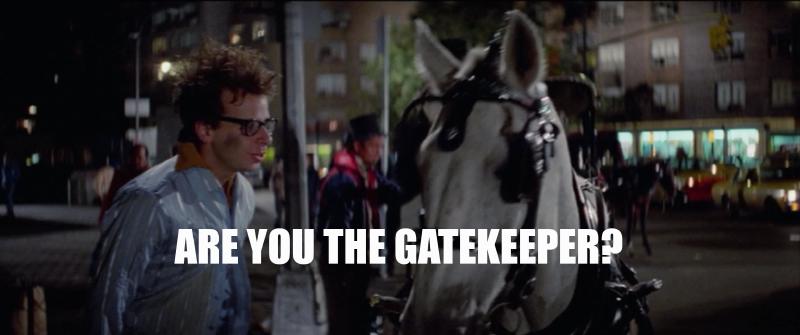I was presented with a very…interesting take recently. Intertesting is putting it mildly. It’s that “self-publishing is just someone clicking Print to PDF”. The bar is so low now that anybody can do it, creating a glut of games with no value, unlike “professional” games. These self-published games don’t cross some magical line between “homebrew that’s been shared” and “professionally published”, and lack something that intrinsically gives professional games more value. “Self-published” is interchangeable with “indie” here — no matter what, it’s just somebody’s homebrew with fancy fonts and lacks the “rigor” of professional game companies. The implication is that nobody will buy these games because they’re no better than someone else’s free creation.
On top of that, there’s the opinion that this is ultimately because the indie TTRPG design community is an ouroboros. It’s focused more on validating that indie creators are “real” and accusing anyone who doesn’t recognize that of #thinkwrong or some garbage. Consumer dollars aren’t driving funding efforts for indie games — it’s “passing the $20” from creator to creator. Somehow the #ttrpg industry’s stagnation, and publishers releasing incomplete games deliberately as part of supplement treadmill cash grabs, are part of this as well. It’s a failfest for everyone!
I’m not going to rebuke any of it directly because it’s bullshit. Instead I’ll pivot to this:
The four things separating a self-published, indie game and a collection of Google docs sitting in a GM’s Google Drive are: desire, effort, time, and opportunity. The GM’s documents might contain a game unplayable by anybody save for them. That game might even be good and their players might love it. But the GM needs to do more than “print to PDF” to make it usable by someone else. Writing it for clarity and usability, editing it, laying it out, adding art…all of that is needed to take a “homebrew” and make it into something accessible that other people can play.
Of course, that doesn’t mean the game or the product is good. Given the ease of sharing a game with the world, there will be some that aren’t. But dismissing indie creators because they’re not “pros” or some measure of their output doesn’t meet arbitrary quality criteria just elitism. It’s incredibly short-sighted and lacks understanding of the tabletop roleplaying industry’s history and dynamics.
Every game, supplement, adventure, or setting started as scribbles in a notebook, a few lines in a word processor document, or whatever. Every writer has started out without having a single word published. Every game designer, artist, editor, or whoever began by thinking they wanted to be a part of creating something and sharing it. Since they can easily self-publish those notes and scribbles, it’s also easier for others to get eyes on one their work. For instance, the eyes of those who already have their names in game books. It opens opportunities for them to work on bigger projects that wouldn’t have been afforded them even ten years ago. It increases the diversity of games within the hobby to everyone’s benefit.
Because of this, gatekeeping who is a “pro” and dismissing indie creators — even if it’s only to suggest nobody will buy their products — only serves to stifle innovation and creativity. It relegates the roleplaying industry to an outdated, monolithic publishing model. Furhtermore, without indie creators we wouldn’t have PbtA. Without PbtA, we wouldn’t have Blades in the Dark, Band of Blades, or Charge. We wouldn’t have Dread, Fiasco, Microscope, Spark, iHunt, Troika, Trophy, Brindlewood Bay, or The Quiet Year without the innovation enabled by a thriving indie community that shares its games with the world. Every person making those games started out in the same place as the indie creator putting their first one-page RPG on itch right now.
Not every game will catch on, and very few will make any money. But even then, don’t let anybody tell you about how indie games are devlaued or how what you’re doing is just clicking “Print to PDF”. If you’re designing games, you’re a game designer and if you self-publish you’re a publisher. Tell anybody who says otherwise to fuck off.
